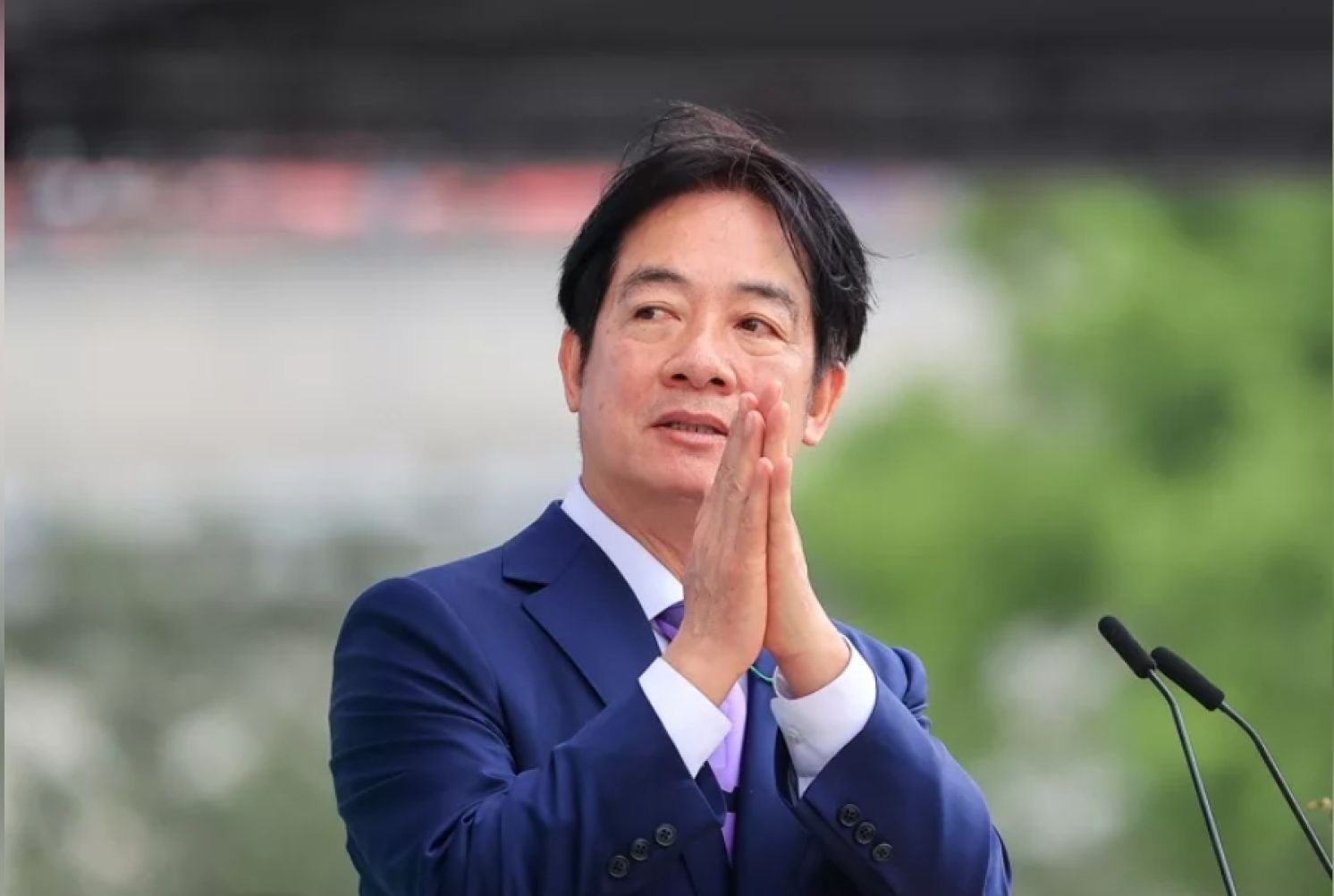
"Not Subordinate to Each Other" Based on Precondition and Framework:Lai Must Not Mislead
United Daily News Editorial, June 16, 2024
In his inaugural address, President Lai Ching-te stated that the Republic of China (ROC) and the People's Republic of China (PRC) are not subordinate to each other, triggering military exercises by Communist China. In a recent interview with Time, President Lai was directly asked if his statement was an unnecessary provocation. He defended his statement with three reasons: First, he spoke the truth; second, former President Ma Ying-jeou and Tsai Ing-wen had said the same; third, he based his statement on the R.O.C. Constitution. This marks President Lai's first public defense of his inauguration speech that caused tensions in the Taiwan Strait. However, this defense is seen as a deceptive shift in concept, which does not benefit peace in the Taiwan Strait or cross-strait development.
Under the tacit understanding between the United States and China, the strong reaction from Communist China to President Lai's speech seemed unexpected to the United States. There is speculation whether the United States had reviewed President Lai's speech beforehand or if they misunderstood the nuances of the Chinese language. It appears that key concepts regarding national identity and cross-strait relations have been subtly altered, resulting in an unusual fusion of the new “Two-State Theory” with the "One China” Constitution. President Lai's rhetorical strategy has confused American understanding while making Communist China feel deceived.
President Lai noted that the fact that the R.O.C. and P.R.C. are not subordinate to each other was previously mentioned by former President Tsai and that former President Ma also said that the R.O.C. is a sovereign state, with the two sides of the strait not subordinate to each other. However, the Ma Ying-jeou Foundation responded by stating that "two states not subordinate to each other" and "two sides of the Taiwan Strait not subordinate to each other" are entirely different concepts. They accused President Lai of playing word games to deceive those unfamiliar with Chinese. Former President Ma further criticized President Lai for "talking recklessly and then making excuses."
The use of wordplay goes beyond deceiving those who do not understand Chinese. When Time magazine directly asked President Lai whether his statement was an "unnecessary provocation," the Office of the President translated it as an "unnecessary statement." If this was merely to avoid offending Chinese sensibilities, it might be understandable. However, translating "the R.O.C. and P.R.C. are not subordinate to each other" into "the two sides of the strait are not subordinate to each other" seems to be a deliberate attempt at cognitive warfare.
Indeed, every president since Lee Teng-hui has mentioned that the two sides are not subordinate to each other, but each did so within a specific context or framework, resulting in different political effects. In 1993, President Lee referred to the R.O.C. and P.R.C. as separate political entities that are not subordinate to each other but coexist simultaneously; this defined cross-strait relations as “One China,” two distinct political entities not subordinate to each other. Even when he proposed the "special state-to-state relationship" in 1999, President Lee formally emphasized the pursuit of future national unification. When President Chen Shui-bian proposed the "one country on each side" concept, it naturally implied two separate countries, not subordinate to each other, but he was also harshly criticized by the United States as a "troublemaker."
After President Lee stepped down, the Kuomintang (KMT) abandoned the “Two-State Theory” and returned to the stance of "One China, with respective interpretations." In 2013, then-President Ma stated that the Republic of China is a sovereign and independent country, and the two sides of the strait are not subordinate to each other, advocating that cross-strait relations should be promoted based on the Constitution. This position, grounded in the Constitution and the Act Governing Relations Between the People of the Taiwan Area and the Mainland Area, maintains that the two sides do not recognize each other's sovereignty while not denying each other's governing authority, upholding the “One China” principle, which remains unchanged to this day.
In her 2021 National Day address, former President Tsai stated that the R.O.C. and P.R.C. are not subordinate to each other. At that time, she still adhered to the framework of handling cross-strait affairs based on the Act Governing Cross-Strait Relations. However, President Lai dismisses the vision of national unification, rejects the buffer of "One China, with respective interpretations," and dismantles the safeguards provided by the Constitution and Cross-Strait Act, focusing solely on the notion of two countries not being subordinate to each other. President Lai claims to speak the truth, but in reality, he confuses the meanings of cross-strait relations and bilateral relations, sovereignty and governing authority, and state and political entity. He deliberately aligns himself with former President Ma's stance while stripping away the “One China” principle, and although he claims to be stating facts based on the Constitution, he ignores the Additional Articles' positioning of "One Country, Two Areas," instead attempting to graft a new two-state theory onto the “One China” Constitution.
President Lai insists that he does not intend to provoke, yet his words have already triggered strong repercussions. He also emphasizes that his goal is to unite the people of Taiwan, but by confusing both domestic and international perceptions, is he merely attempting to "cleanse the people's hearts"? Whether it is a deliberate obfuscation or a genuine misunderstanding on his part, playing with fire in this gray area only leads to conflict. President Lai’s rhetorical strategy may seem practical to proponents of Taiwan independence, perplexing to the United States, infuriating to Communist China, cruel to the R.O.C., and harsh to the peace-seeking populace.